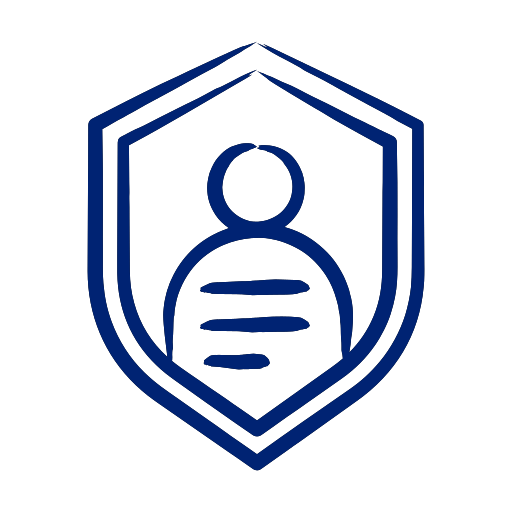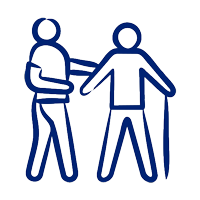Cancer and Mental Health Support (OncoPsych)
Cancer affects more than your body—it impacts your emotions, relationships, and sense of self. Get specialized psycho-oncology support that understands your unique journey, wherever you are in the process.
- Licensed Specialists
- Personalized matching
- Confidential Sessions

We accept many insurance plans
In this page:
- What is Psycho-Oncology?
- This Program Is Designed For You If…
- Why Cancer Survivorship Needs Specialized Care
- What You’ll Work Through Together
- Types of Online Support Available
- Why Online Therapy Works for Cancer Patients
- Ready to Start Your Emotional Healing Journey?
- Specialized Support That Understands Your Journey
- Frequently Asked Questions
What is Psycho-Oncology?
Psycho-oncology is mental health care designed specifically for people affected by cancer and their families. It combines psychological expertise with deep understanding of the cancer experience, addressing the emotional, social, and behavioral aspects of cancer from diagnosis through survivorship.
This specialized field includes psycho-oncologists, social workers, counselors, psychiatrists, and chaplains who are specifically trained to understand the unique challenges cancer brings to mental health.
15-25%
of cancer patients experience clinical depression
Source: Cancer Support Community
23%
face anxiety disorders during their cancer journey
Source: Cancer Support Community
80%
report improved quality of life with mental health support
Source: American Cancer Society
This Program Is Designed For You If...







Why Cancer Survivorship Needs Specialized Care
Not all therapy is the same—and cancer survivorship brings challenges that general therapists simply aren’t trained to handle. The difference isn’t just expertise, it’s understanding.

They know the language
Evidence-based approaches

Medical trauma expertise

Survivorship-specific tools
What You'll Work Through Together
Coping with Diagnosis
Managing Treatment Anxiety
Navigating Uncertainty
Finding Meaning
Managing Fatigue
Body Image & Identity
Mindfulness Practices
Pain Management
Communication with Loved Ones
Intimacy & Relationships
Managing Medical Relationships
Caregiver Support
Returning to Work
End of Treatment Transition
Advanced Illness Coping
Types of Online Support Available
One-on-One
Counseling
Individual therapy sessions with psycho-oncologists who specialize in cancer-related psychological care.
- ✓Specialists trained in cancer psychology.
- ✓Personalized treatment plans.
- ✓Evidence-based approaches like CBT and ACT.
- ✓Understanding of medical trauma and treatment anxiety.
- ✓Support for survivorship challenges.
Group
Therapy
Structured group sessions with others facing similar cancer-related challenges.
- ✓Cancer-specific support groups.
- ✓Shared experiences and coping strategies.
- ✓Reduced isolation and loneliness.
- ✓Facilitated by trained psycho-oncologists.
- ✓Stage-specific or general cancer groups.
Family
Therapy
Counseling sessions that include family members and caregivers in the healing process.
- ✓Improved family communication.
- ✓Support for caregivers and loved ones.
- ✓Addressing relationship changes.
- ✓Couples counseling for intimacy issues.
- ✓Help with disclosure to children.
Why Online Therapy Works for Cancer Patients


Treatment from Home

Flexible Scheduling

Enhanced Privacy

Reduced Physical Strain
Ready to Start Your Emotional Healing Journey?
Connect with a Care Coordinator
Specialized Support That Understands Your Journey
Your Personal Guide to the Right Fit





Specialists in Cancer Survivorship





Frequently Asked Questions
How does the matching process work?
After you complete our intake form, a care coordinator will call you within 24-48 hours for a personal conversation. They’ll learn about your cancer journey, current challenges, and therapy goals to match you with a therapist who specializes in your specific needs.
Do your therapists really understand cancer survivorship?
Yes. All our therapists have specialized training in oncology psychology and have experience working with cancer survivors. They understand the unique emotional challenges that come with survivorship—from scanxiety to identity shifts to relationship changes.
How long are the therapy sessions?
Sessions are typically 50 minutes and conducted through secure video calls. You and your therapist will work together to determine the frequency that works best for your needs and schedule.
Do you take insurance?
We work with most major insurance plans. Your care coordinator will verify your benefits and explain your coverage during your initial call.
What if I don't connect with my first therapist?
That’s exactly why we have care coordinators. If the first match isn’t quite right, we’ll work with you to find a better fit. Your comfort and connection with your therapist is essential for successful therapy.
Is this right for me if I finished treatment years ago?
Absolutely. Survivorship challenges can emerge months or even years after treatment ends. Whether you’re newly post-treatment or years into survivorship, if you’re struggling with the emotional aspects of your cancer experience, this program can help.
How is this different from regular therapy?
Cancer survivorship creates unique psychological challenges that general therapists aren’t equipped to handle. Our specialists understand that your anxiety isn’t just anxiety—it’s scanxiety with specific triggers and patterns. They know that your identity struggles aren’t typical life transitions—they’re the profound shifts that come from facing mortality and emerging changed. This isn’t about being “better” therapists; it’s about having the right training for your specific experience.
What if I'm not sure I'm "ready" for therapy?
Feeling unsure is completely normal. That’s why we start with a no-pressure conversation with your care coordinator. They can help you understand what therapy might look like and whether now feels like the right time for you. There’s no obligation to continue after that initial call.






